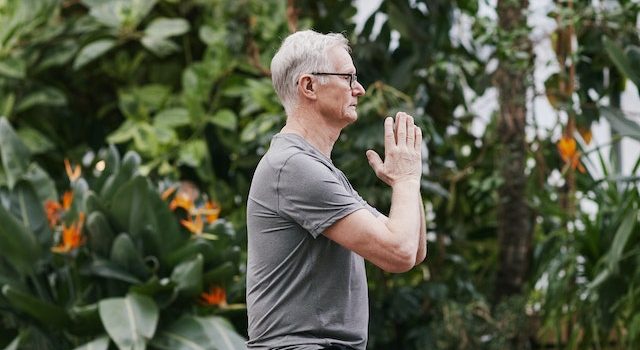
In the realm of fitness and bodybuilding, age is often seen as a limiting factor. However, one 60-year-old bodybuilder is challenging the notion that advancing years equate to a decline in physical prowess. Meet John Masters, a seasoned athlete who has defied stereotypes and continues to pursue his passion for bodybuilding well into his sixties. In this article, we delve into John’s unique perspective on fitness, his training approach, and the wisdom he has gained over the years.
John’s journey into bodybuilding began in his early twenties, driven by a desire to sculpt his physique and maintain a healthy lifestyle. Over the decades, he has dedicated himself to consistent training, proper nutrition, and a disciplined lifestyle. While his commitment to fitness has remained unwavering, John acknowledges that his approach to workouts has evolved significantly as he has aged.
One of the most notable changes in John’s training routine is a greater emphasis on longevity and injury prevention. In his younger years, he admits to pushing his body to the limits, often disregarding the signs of fatigue or strain. However, with age comes a deeper understanding of the importance of listening to one’s body and avoiding overexertion. John now incorporates more rest days into his schedule and focuses on quality over quantity in his workouts.
Flexibility and mobility have also become paramount in John’s training regimen. As we age, our bodies naturally experience a decrease in flexibility, making it crucial to prioritize stretching and mobility exercises. John spends ample time warming up, engaging in dynamic stretches, and performing exercises that promote joint mobility. He credits this shift in focus to improved overall performance and reduced risk of injury.
Additionally, John has embraced the concept of periodization in his training. Rather than maintaining a constant intensity throughout the year, he now incorporates phases of varying intensity and volume. This strategic approach allows for adequate recovery and prevents the body from plateauing. By adjusting his training program according to his goals and current fitness level, John has been able to continue making progress while minimizing the risk of overtraining.
Nutrition also plays a vital role in John’s fitness journey. While he maintains a balanced diet year-round, he has become more conscious of the importance of adequate protein intake to support muscle recovery and maintenance. John focuses on consuming high-quality protein sources and ensures he is meeting his daily macronutrient requirements. He also pays attention to his overall calorie intake, making adjustments based on his activity level and goals.
Perhaps the most significant aspect of John’s approach to fitness is his mindset. Over the years, he has cultivated a positive and resilient attitude that fuels his motivation and dedication. He acknowledges that progress may be slower compared to his younger self, but he remains committed to the process, recognizing that consistency and patience are key. John believes that a strong mental outlook is just as important as physical strength and encourages others to adopt a similar mindset regardless of their age or fitness level.
John’s journey serves as an inspiration to individuals of all ages who are pursuing their fitness goals. His story reminds us that age should not be a deterrent but rather an opportunity to embrace new training strategies, prioritize overall well-being, and adopt a mindset of continuous growth. Through his wisdom and experience, John exemplifies the belief that age is not a barrier but a catalyst for personal transformation.
In conclusion, John Masters, the 60-year-old bodybuilder, defies conventional expectations by showcasing his dedication, wisdom, and adaptability in the realm of fitness. His evolved approach to training, incorporating elements such as injury prevention, flexibility, periodization, and mindful nutrition, has allowed him to continue thriving in his pursuit of physical excellence. John’s story serves as a powerful reminder that age should not limit our aspirations or potential for growth, but rather serve as a foundation for embracing new perspectives and continuously challenging ourselves.










